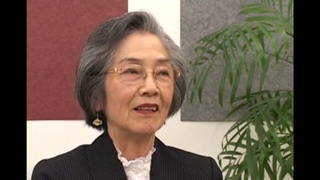Interviews
Finding work in the assembly center
Well, assembly center, but I was busy. What I did was, I don't want to idle, so then no place, you cannot go movie or anything, just assembly center. And some Kibeis, they tried to gamble and things like that but I don't have any money and so I said I got to get some kind of job, keep myself, mind occupied, so I, job says in there, What do you have? they says, What can you do? They asked me, see. So my line is produce and vegetable, but they don't grow that say, but the thing is, well, they have a vegetable department, says, and, You a high school graduate? I said, Yeah. Then no difficulty. See, Issei guy try to do it, then they couldn't communicate and wouldn't get the job even though he could do it manually, but then he cannot handle what the instruction was. So then they read the menu and things like that but what I did was I worked in the grocery store and also vegetable stand, Okay, then you know all the vegetables? I said, Yeah, yes sir. Okay, then you be head of the vegetable department. See, I'm the only young guy.
Date: December 17 & 18, 2003
Location: Washington, US
Interviewer: Alice Ito, Tom Ikeda
Contributed by: Denshō: The Japanese American Legacy Project.










